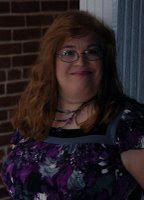I would like to welcome Angus Munro to ReadingMama as he tours the blogosphere promoting his book wonderful book A Full House-But Empty.
A view of A Full House – But Empty by Angus Munro.
 I was born in Vancouver, British Columbia, Canada during the Great Depression. Our father, a single parent raised my two sisters and me. Those were very tough and hectic years both economically and emotionally. The Depression ended and World War II started. At age fourteen, I dropped out of school due to an unfortunate incident the prior year and having had repeated the seventh grade.
I was born in Vancouver, British Columbia, Canada during the Great Depression. Our father, a single parent raised my two sisters and me. Those were very tough and hectic years both economically and emotionally. The Depression ended and World War II started. At age fourteen, I dropped out of school due to an unfortunate incident the prior year and having had repeated the seventh grade.At age seventeen, this grade-school dropout was working in a sawmill tossing lumber ends off of a conveyor belt. A theological student from the University of British Columbia attended one of our home parties. We became friends and one evening he delivered a Dutch uncle speech to me. He told me in plain English to get off of my ass and get moving in the right direction. He suggested that I take evening classes at a local high school in typing and accounting to acquire some basic skills. He also stated that I should seek an entrance position in a white-collar setting that would afford future advancements. I attempted to refute his suggestions by stating I was a failure, a dropout with no skills. He stated that I unequivocally had above average intelligence and assuredly possessing great untapped potentialities. He pointedly stated that is your focus not unfortunate past events. Mission accomplished – I immediately did exactly what he suggested.
I progressively worked up the vocational ladder, starting from the bottom rung. During my career, I spent nine very successful years in the petroleum industry and was scheduled for a junior executive position in home office. I decided to change careers. I spent thirty-nine very productive years in hospital administration in California and Alaska. I was a director of several departments with staffing complements of fifty-five to seventy employees prior to my retirement.
My message is of moving ahead and lessons learned from my father and others. Thus helping me to successfully climb up the vocational ladder along with enhancing myself in addressing my needs and importantly the needs of others.
Angus Munro has roots that run deep. His farming ancestors came from Scotland in 1830 and his relatives still reside on the same farmlands in Southern Ontario, Canada. His grandfather left Ontario and took his family to Saskatchewan in 1905 and became a prosperous wheat farmer. When Angus' father married, the grandfather leased other farmlands to get his son established. Angus' father lost the total proceeds of his first wheat crop in a wild poker game at the local grain elevator. The grandfather was none too happy and decided to relocate to Vancouver, B.C.
The Depression deepened and sadly Angus' grandfather passed away - leaving his entire estate to his second son. Angus' father traveled to see his brother to seek financial assistance and received nothing. He returned to Vancouver unexpectedly one evening and found his wife in bed with someone else. Thus, his father became a single parent to three children - Laura 6, Angus 3, and Marjorie and infant. The following day, Angus became very ill with appendicitis and spent seven weeks in the Vancouver General Hospital. The author vividly covers his early childhood years and living with another family - similar circumstances, a father with five children, coping with the Depression and, thereafter, addressing their dual basic family needs.
Angus' new memoir, A Full House - But Empty, is the gripping story of young Angus' life growing up in the Depression years based on the positive lessons he had learned from his father during their somewhat traumatic and hectic years together.
If you would like to find out more about Angus, visit his website at http://www.angusrmunro.com/.
Thank you Angus for sharing your story.




























